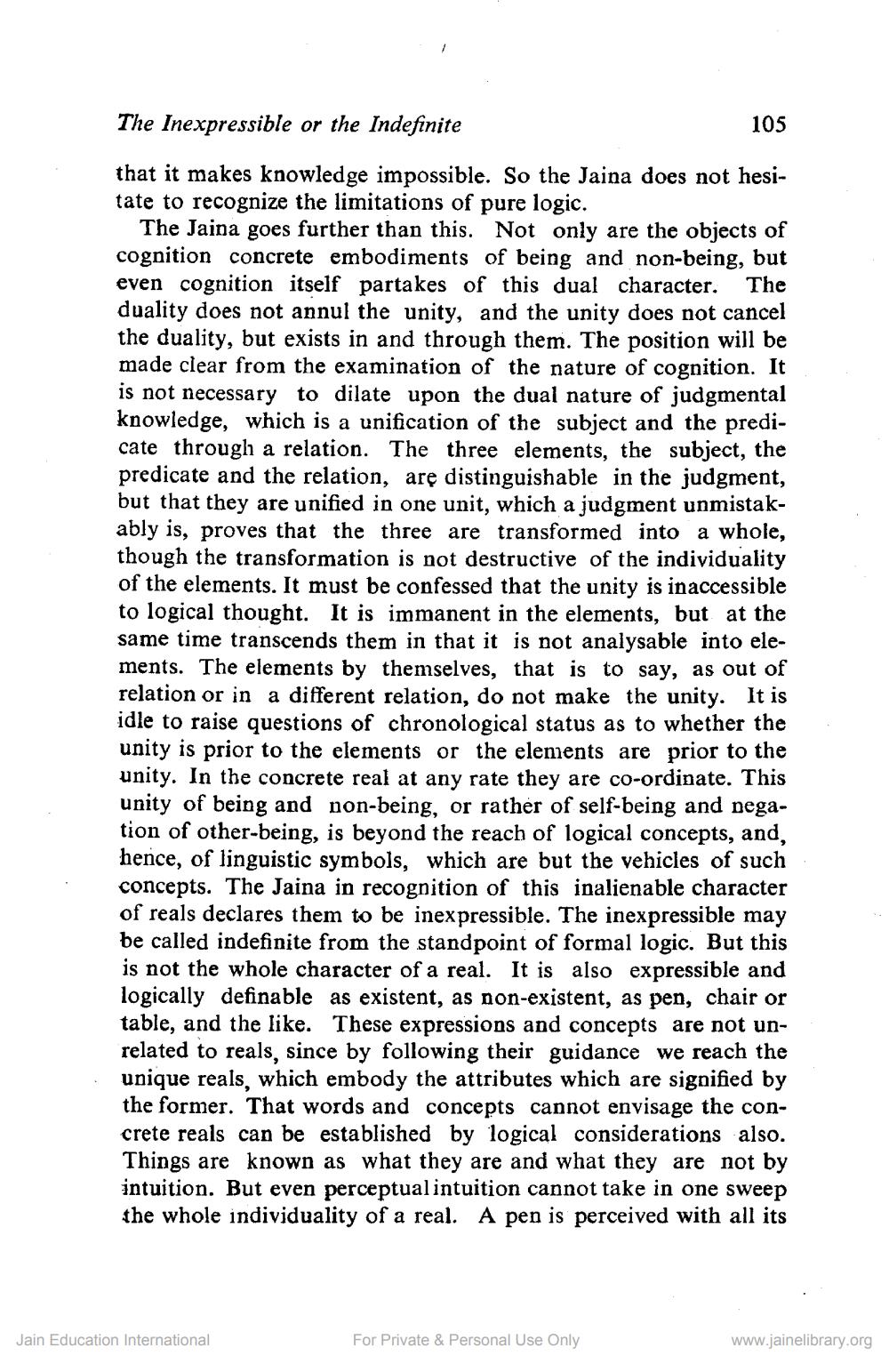________________
The Inexpressible or the Indefinite
105
that it makes knowledge impossible. So the Jaina does not hesitate to recognize the limitations of pure logic.
The Jaina goes further than this. Not only are the objects of cognition concrete embodiments of being and non-being, but even cognition itself partakes of this dual character. The duality does not annul the unity, and the unity does not cancel the duality, but exists in and through them. The position will be made clear from the examination of the nature of cognition. It is not necessary to dilate upon the dual nature of judgmental knowledge, which is a unification of the subject and the predicate through a relation. The three elements, the subject, the predicate and the relation, are distinguishable in the judgment, but that they are unified in one unit, which a judgment unmistakably is, proves that the three are transformed into a whole, though the transformation is not destructive of the individuality of the elements. It must be confessed that the unity is inaccessible to logical thought. It is immanent in the elements, but at the same time transcends them in that it is not analysable into elements. The elements by themselves, that is to say, as out of relation or in a different relation, do not make the unity. It is idle to raise questions of chronological status as to whether the unity is prior to the elements or the elements are prior to the unity. In the concrete real at any rate they are co-ordinate. This unity of being and non-being, or rather of self-being and negation of other-being, is beyond the reach of logical concepts, and, hence, of linguistic symbols, which are but the vehicles of such concepts. The Jaina in recognition of this inalienable character of reals declares them to be inexpressible. The inexpressible may be called indefinite from the standpoint of formal logic. But this is not the whole character of a real. It is also expressible and logically definable as existent, as non-existent, as pen, chair or table, and the like. These expressions and concepts are not unrelated to reals, since by following their guidance we reach the unique reals, which embody the attributes which are signified by the former. That words and concepts cannot envisage the concrete reals can be established by logical considerations also. Things are known as what they are and what they are not by intuition. But even perceptual intuition cannot take in one sweep the whole individuality of a real. A pen is perceived with all its
Jain Education International
For Private & Personal Use Only
www.jainelibrary.org




